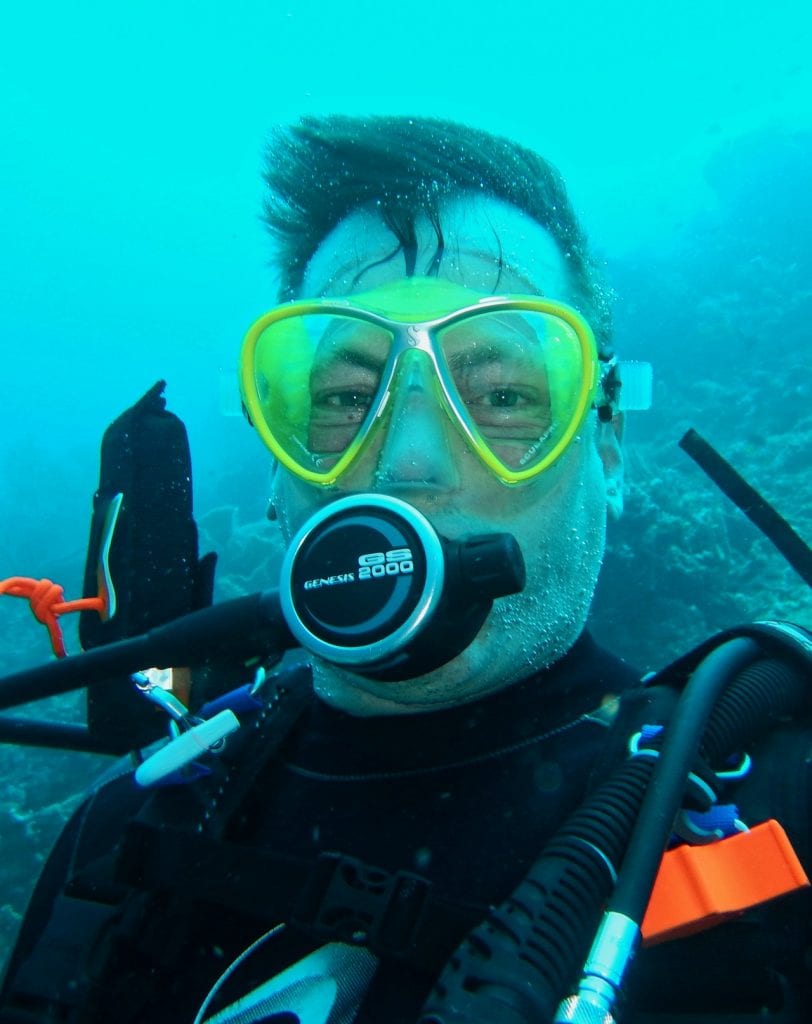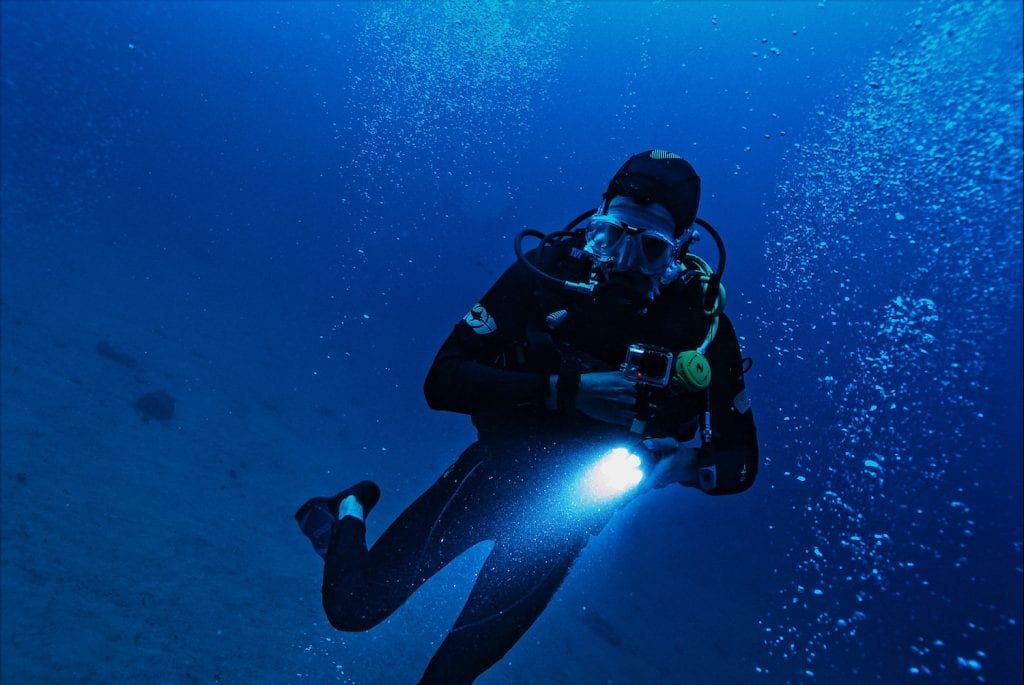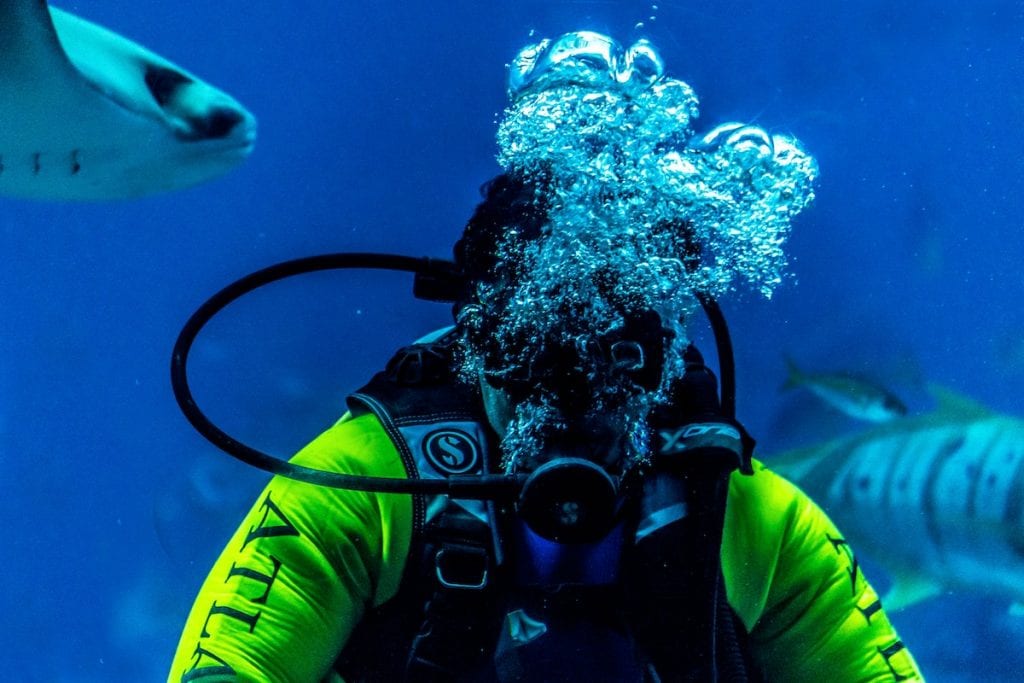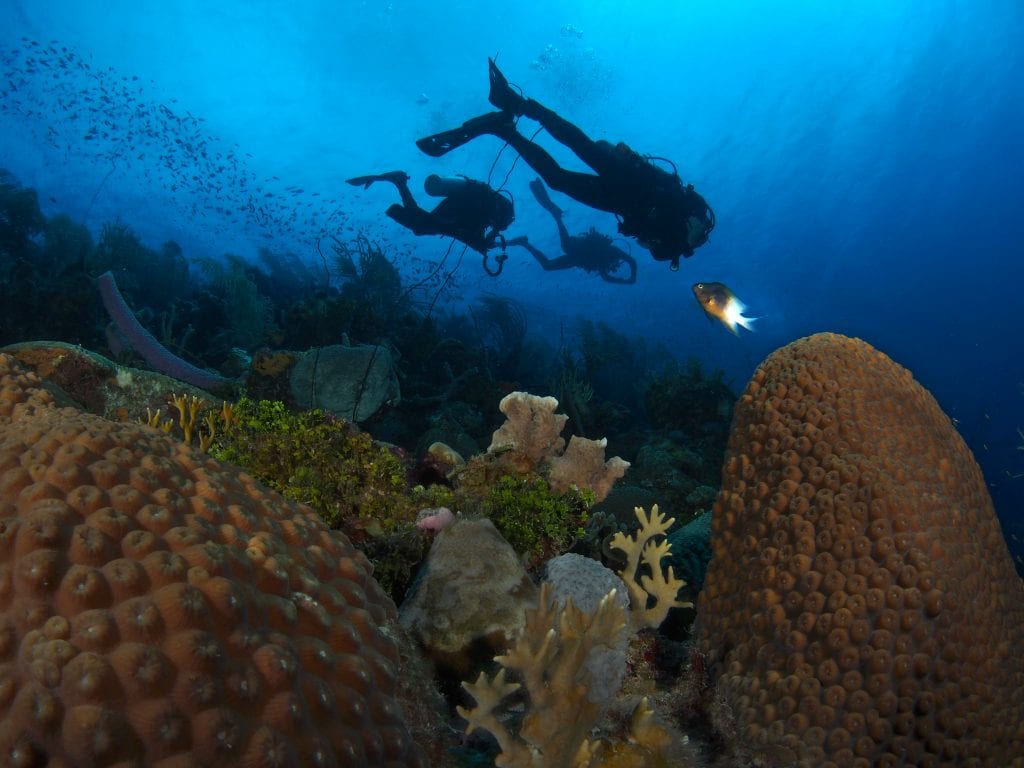
When it comes to SCUBA gear, you can either rent or purchase your own equipment. Each option has its pros and cons, but owning your own SCUBA gear is typically more practical for avid or regular SCUBA divers. Not only is cleanliness a non-issue when you purchase your own gear, but it could also save you money and give you more time under the water. Many SCUBA divers prefer to have their own equipment, and it’s easy to see why. To learn about all of the benefits of owning your own SCUBA gear, take a look below.
One of the first things you should consider when deciding if you want to purchase your own gear or continue renting it is how often you plan on going SCUBA diving. Avid divers who plan on taking several SCUBA trips a year are going to significantly benefit from having their own gear. Though the initial costs of SCUBA diving are steep, you won’t be paying for these things every time you dive. Most dive equipment lasts for decades and can be purchased second-hand from dive shops or other dive enthusiasts for a lesser cost.
If you plan on diving more than once or twice a year (and you should!), then purchasing your own SCUBA gear is going to allow you to have the best experience and will save you money in the long run. The cost of renting all the SCUBA equipment you need for a day trip can range between $50-$100. This amount quickly adds up and the constant re-renting means you won’t have any gear of your own to bring home, personalize (put everything right where you want it, download your dive log), and take care of.
 Equipment That Fits Your Needs
Equipment That Fits Your NeedsThe two most basic pieces of SCUBA gear you’ll be required to use with each dive are masks and fins. Both of these pieces are essential to your dive and having ill-fitting masks or fins often results in leaking and can be a huge distraction. Your mask should fit snug against your face so that the suction locks in the air and keeps out water. It should not be the case that you have to tighten it as tight as it goes to keep water out of it. And fins should be all about fit and comfort. This will help prevent unwanted distractions and overworking your muscles.
Another piece of SCUBA gear that is extremely beneficial to own is a wet suit. Wetsuits are intended to keep you warm under the water, but this only works if the suit fits properly. If the fit isn’t just right then you will have water leaking in, making you cold and stopping the dive early. Because of this, it’s crucial that your wetsuit fits you snuggly and doesn’t let in any water. Also, most dive shops don’t offer different thicknesses of wetsuits, only thinner suits that can be very limiting and unusable in cold water conditions.
One of the biggest benefits of purchasing your own SCUBA gear is getting to familiarize yourself with how the equipment works. It’s so important to understand exactly how your gear functions and renting can lead to confusion that may be potentially dangerous in certain situations.
Take, for instance, a dive computer. A Dive Computer’s job is to get you safely back to the surface. If you do not understand where all of the information is or why it is alarming you of something, then it is not helping you. Having one of your own means that there will be no questions about how the device works and you will be able to log every dive you go on. You can set the specific alarms that you want and turn off those that you do not. You can easily set it for the appropriate Enriched Air Nitrox mix because you’ll learn how to do so the same way every time. And, as mentioned before, you can download your dive profiles and log your dives digitally. There are many different makes and models of dive computers and they can take a while to get familiar with. Not only does owning your own allow you to keep track of your dives, but it also saves you time when it comes to getting set up for diving.
Other SCUBA devices that are commonly used and worth purchasing for yourself are regulators and buoyancy control devices (BCD). A middle-of-the-road or higher-end regulator will breathe better than a lower-end one, no matter how deep you go within the recreational limits. BCD’s are not all made the same and do not all offer the same features. Some regulators offer better corrosion resistance than others and some are heavier which makes traveling with them less convenient. The same goes for BCD’s and some are more comfortable than others. These two devices can significantly improve your diving experience and are typically better maintained in your own home with normal use as opposed to heavy use as in being rented every day and dived much more than 100 times a year! BCDs are also customizable and being able to regulate the settings for you and keeping them there can save a great deal of time and hassle. You will put everything where you want every time and you will access it easier. Everything in its place and a place for everything.
One of the main reasons divers purchase their own gear is for maintaining the cleanliness and functionality of the equipment. Owning your own SCUBA gear means that no one besides you is using the equipment. You won’t have to worry about germs from other divers being on your equipment and you know exactly where it’s all been.
You can also rest assured with your own gear that it’s been maintained to your standards. If a regulator is not maintained properly, it can pose a serious threat to the diver. When you purchase and maintain your own gear, you’re able to monitor the functionality of the device better and keep it in fully working condition.

There are several dive accessories that are available for purchase, but not all of them are available to rent. Some of the most popular items are cameras, flashlights, signaling devices, and hunting gear. These items can be purchased and used in several dive trips which makes them worth spending the money on.
There are quite a few pieces of equipment you’ll need for SCUBA diving and if you plan on continuing this hobby or pursuing it as a professional, then it’s definitely in your best interest to purchase your own equipment. There are several benefits to owning your own SCUBA gear and we hope you’ll consider taking the plunge and getting your own equipment.
Connect with John at Dreaming Sea Divers today to get your SCUBA diver certification or if you have any questions about gear! He emphasizes the importance of safety in his courses and is always willing to help new divers improve their skills. See how John can help you become a certified diver today! He is also a huge gear head and has tried many different makes, models, and styles of equipment and loves talking about equipment and helping divers find the perfect kit for them!
SCUBA diving can be intimidating to beginners but it’s quickly become one of the most popular recreational outdoor activities across the world. Getting started is much easier than you may think, and working with an experienced dive instructor will help you feel more confident and comfortable during your first few dives. There are some vital things to know about SCUBA diving and it’s important to have some idea of what you’re signing yourself up for. Take a look at our beginner’s guide to SCUBA diving and see for yourself why so many have taken up this popular outdoor hobby.
 What is SCUBA diving?
What is SCUBA diving?SCUBA stands for self-contained underwater breathing apparatus which is a mechanism used in diving to allow us to breathe underwater and maneuver. SCUBA gear allows you to dive and breathe completely independently of surface air, meaning there’s no need to come to the surface to catch your breath. This gives you greater independence and more freedom of movement while also permitting you to stay underwater for longer periods of time compared to Freediving. (Refer to the blog about the differences between Freediving and SCUBA Diving for more info!)
SCUBA diving can be done recreationally and professionally. About 1 million people across the world are recorded getting their SCUBA certification each year. And there are hundreds of diving careers to choose from including becoming a dive instructor, dive travel leader, naval diver, or hazmat cleanup diver to name a few.
Though there are risks to just about any outdoor activity, SCUBA diving is considered to be a low-risk activity. In comparison, snowboarding, bowling, fishing, and volleyball lead to more Emergency Room admissions than SCUBA diving each year. As long as you utilize safe diving practices and remember the tips and tricks you learn in your Open Water SCUBA Diver Course and subsequent courses depending on your environment, you should have nothing to worry about. The most common medical concerns associated with diving are sunburns, seasickness, and dehydration - which are all easily preventable.
The minimum age requirement for the Junior Open Water SCUBA diving certification in most of the U.S. is 10 years old. Furthermore, anyone under the age of 12 will need to be accompanied by a guardian or guide at all times. This is to ensure the safety and comfort of children as well as their families. Children as young as 8 years old can try it in a pool with a professional!
The bends, which is also known as decompression sickness, refers to the way your body reacts to a rapid decrease in the pressure that surrounds you. This can refer to air or water pressure. In diving, the bends typically occur when nitrogen bubbles form in your system which can lead to blocked blood vessels. One of the first signs of decompression sickness is a tingly sensation that can be felt throughout your limbs. The bends typically result in joint pain felt throughout the body and in some cases could cause greater concerns. However, decompression sickness is quite rare and easily preventable by diving conservatively and following established guidelines that you learn and that your diving computer reminds you of.
It’s no secret that SCUBA diving is an expensive hobby to start up. From the equipment to taking diver’s courses, SCUBA diving can initially cost a substantial amount of money. There is quite a bit of gear and equipment used in SCUBA diving that needs to be purchased prior to taking your first course, and courses can range from $100 to $3000. Though the initial costs of SCUBA diving are steep, you won’t be paying for these things every time you dive. Most dive equipment lasts for decades and can be purchased second-hand from dive shops or other dive enthusiasts for a lesser cost. And once you become SCUBA certified, you’re certified for life.
Another expense that you should consider in regards to SCUBA diving is whether or not you live near a body of water that you can go diving in. The ocean isn’t the only place to dive, but it is the most popular, which for many, requires some sort of travel. Depending on your mode of transportation - whether you decide to fly, drive, or arrive by boat to your destination - this can add a significant price tag to SCUBA diving.

To get your SCUBA diving certification you’ll need to meet with a certified diving instructor. The courses which are offered under our Diving Fundamentals section will give you the basic diving skills and knowledge you need to begin your journey to becoming a qualified SCUBA diver. Along with supervised dives, you’ll be required to do your own independent studying of safety guidelines and specific diving techniques. You’ll also be required to learn the basic safety guidelines and skills that are needed to experience a variety of new things such as:
There are quite a few pieces of equipment you’ll need for SCUBA diving, but the most basic tools you’ll need are:
Keep in mind that the rental of almost all of this equipment is included in almost every class tuition that Dreaming Sea Divers offers!
Interested in expanding your dive abilities? Then connect with John at Dreaming Sea Divers today to get your SCUBA diver certification! He emphasizes the importance of safety in his courses and is always willing to help a new diver improve their skills. His goal is to make everyone confident, safe, and able to plan and execute dives with a qualified buddy. See how John can help you become a certified diver today!